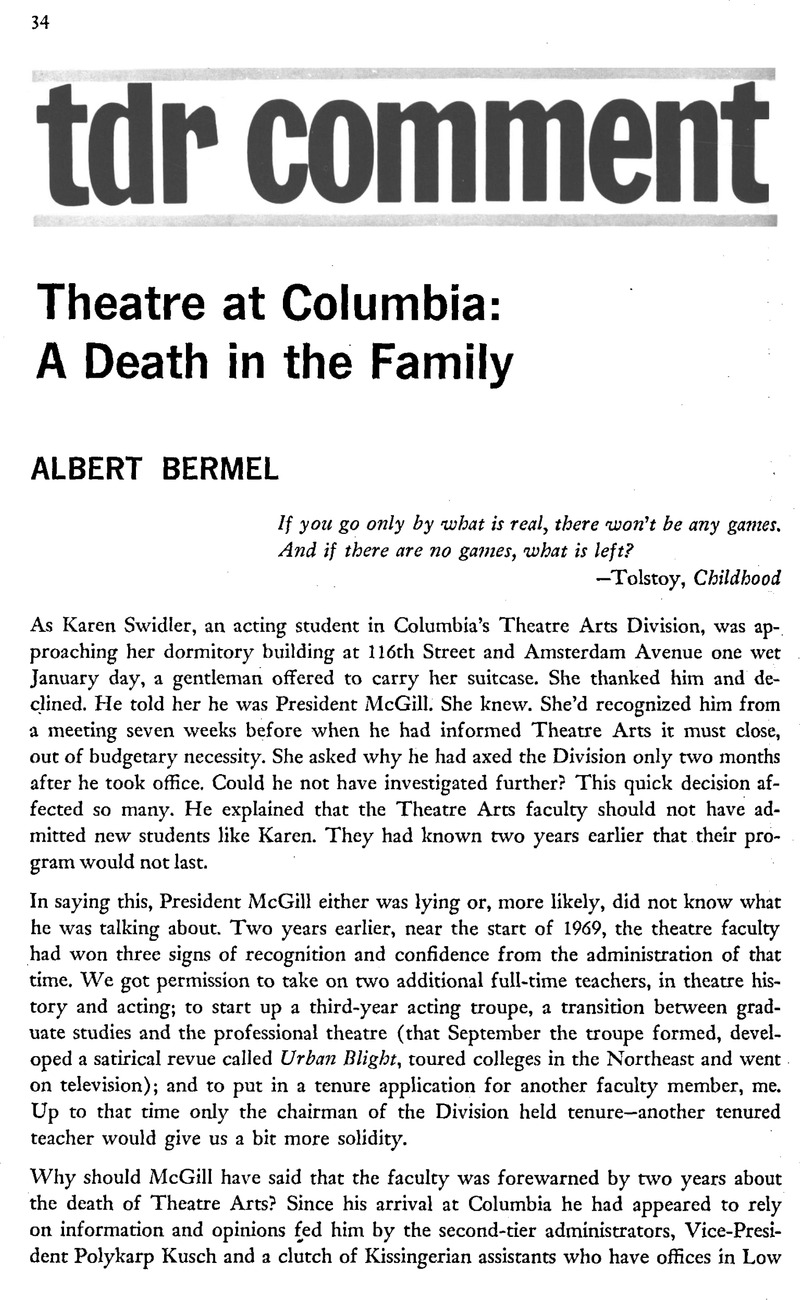No CrossRef data available.
Published online by Cambridge University Press: 07 December 2021

1 Whether intentionally or not, McGill was echoing a phrase Vice-President Kusch had used in a letter to the Spectator mourning the death of Columbia Forum, of which he had been ex-officio chairman of the advisory board—his latest advice, in the form of an order, had been to close the Forum down and so save Columbia $100,000 a year. Naturally, Kusch wrote, he felt sad about what had happened. Still, the magazine had not lived up to its original objective of mustering cash and support for the university from alumni. The first editor of the Forum, Erik Wensberg, then replied. He had kept all the minutes and correspondence from the time when the Forum was being planned, and there had been no suggestion that the magazine should serve any purpose other than providing a well-edited outlet for good writing. Kusch never answered Wensberg or explained how he came by his assumption of the Forum as a charity appeal for Columbia.
2 In a report cited in the November 18, 1970, Times, Columbia's Urban Center singled out some programs which had been more than mere buffers “to protect [the university] from militant movements and to decelerate tensions“—successful efforts to “involve Columbia in community affairs“: one of these was a School of the Arts training program for black students from Harlem and Bedford-Stuyvesant who wish to enter the theatrical profession.